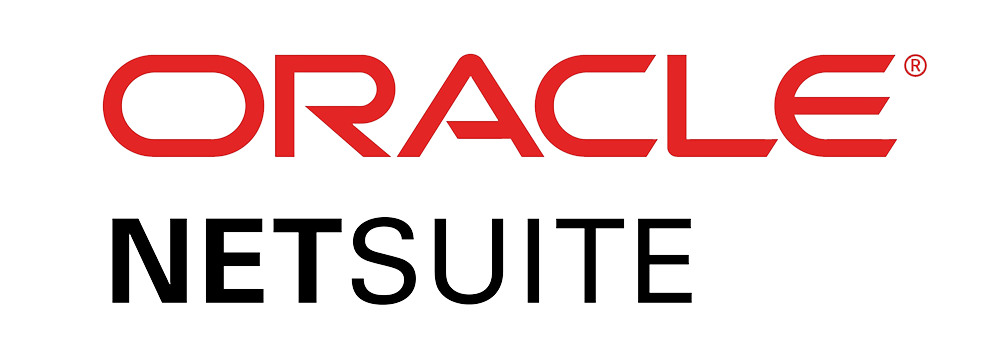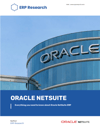What is NetSuite?
NetSuite is a suite of cloud-based business management software owned by Oracle Corporation. It offers a range of modules that can be used to manage various aspects of a business, including financials, inventory management, purchasing, order management, and customer relationship management. NetSuite also provides features for human resources, payroll, and e-commerce.
What is Acumatica?
Acumatica is another cloud-based ERP system that offers similar functionality to NetSuite, including financial management, project accounting, distribution management, and customer management. It is designed for small and medium-sized businesses and offers a customizable interface that can be tailored to meet specific business needs.
Functionality & Modules
Both NetSuite and Acumatica are comprehensive cloud-based ERP platforms that offer a wide range of functionality and modules to help businesses manage their operations. However, there are some differences in the specific functionality and modules offered by each platform.
Functionality and Modules of NetSuite:
- Financial Management: includes general ledger, accounts payable and receivable, fixed assets, billing, and financial reporting
- Inventory Management: includes inventory control, demand planning, purchasing, and order management
- Supply Chain Management: includes procurement, order fulfillment, shipping and receiving, and demand planning
- E-commerce: includes online storefront, order management, and payment processing
- Customer Relationship Management (CRM): includes sales force automation, marketing automation, and customer service management
- Human Capital Management (HCM): includes employee self-service, payroll processing, and benefits management
- Professional Services Automation (PSA): includes project management, resource management, time and expense tracking, and billing
Functionality and Modules of Acumatica:
- Financial Management: includes general ledger, accounts payable and receivable, fixed assets, cash management, and financial reporting
- Distribution Management: includes inventory control, purchasing, order management, and warehouse management
- Manufacturing Management: includes production planning, engineering change control, and quality management
- Service Management: includes field service, contract management, and project accounting
- CRM: includes sales force automation, marketing automation, and customer service management
- Project Accounting: includes project management, resource management, time and expense tracking, and billing
- Inter-Company Accounting: includes multi-entity management, inter-company transaction processing, and consolidation
NetSuite offers a more comprehensive range of modules, including e-commerce, HCM, and PSA, which may make it a more suitable choice for businesses with specific needs in these areas. Acumatica, on the other hand, offers more specialized functionality in areas such as distribution, manufacturing, and service management, which may make it a better fit for businesses in these industries.
Industries
Both Acumatica and NetSuite are flexible and comprehensive cloud-based ERP platforms that can be suitable for various industries. However, each platform has strengths that make it more suitable for certain industries than others.
Acumatica is generally well-suited for small to mid-sized businesses in industries such as manufacturing, distribution, and services. The platform's flexible and modular architecture allows businesses to customize and configure the system to meet their specific needs. Acumatica has strong capabilities in managing supply chain operations, inventory, and financials. Additionally, the platform's open API allows for easy integration with other software systems, making it an attractive choice for businesses that need to connect with other applications and tools.
NetSuite, on the other hand, is a more mature and widely-used platform that is well-suited for mid-sized to large enterprises across various industries. The platform has a comprehensive suite of modules, including financials, inventory, supply chain, e-commerce, and CRM, making it a good fit for businesses that need a fully integrated ERP solution. NetSuite also has strong capabilities in multi-currency and multi-country operations, making it a good choice for businesses with global operations. Additionally, NetSuite has built-in analytics and reporting capabilities, which can be helpful for businesses that need to make data-driven decisions.
Ecosystem
Both the NetSuite and Acumatica ecosystems are well-established, mature, and growing. However, NetSuite has a larger ecosystem and is more widely used than Acumatica.
NetSuite was founded in 1998 and has been in the market for over two decades. It is currently used by more than 22,000 organizations across a wide range of industries and regions. NetSuite has a large and diverse partner network, including over 800 solution providers and more than 400 SuiteApp developers. NetSuite's ecosystem includes many well-established players, including global consulting firms, such as Deloitte and Accenture, and major technology vendors, such as Oracle.
Acumatica, on the other hand, was founded in 2008 and is a newer player in the market. It is currently used by over 6,500 organizations across various industries, including manufacturing, distribution, and services. Acumatica has a smaller partner network compared to NetSuite, with around 300 VARs, ISVs, and SIs. However, Acumatica has been rapidly growing its ecosystem, with a focus on developing partnerships with innovative technology companies to extend the functionality of its platform.
Overall, both ecosystems offer a wide range of resources, services, and tools to help businesses manage their operations and drive growth. However, NetSuite has a larger and more mature ecosystem, while Acumatica is growing and evolving quickly. Ultimately, the choice between these two platforms will depend on the specific needs and requirements of each business.
Maturity
NetSuite and Acumatica have different histories, with NetSuite being a more mature platform than Acumatica.
NetSuite was founded in 1998 and has been in the market for over two decades. It has a large and diverse customer base of over 22,000 organizations across a wide range of industries and regions. NetSuite has undergone multiple iterations and improvements over the years, with a focus on innovation, expansion, and scalability. NetSuite is now owned by Oracle, one of the largest technology companies in the world, which has further strengthened its position in the market.
Acumatica, on the other hand, was founded in 2008 and is a relatively newer player in the market. Acumatica has grown rapidly in recent years, with a focus on expanding its ecosystem of partners, developers, and customers. However, compared to NetSuite, Acumatica has a smaller customer base and partner network. Despite this, Acumatica has received industry recognition and awards for its innovative and flexible platform.
Overall, while both platforms offer robust and comprehensive ERP solutions, NetSuite has a longer history and a larger and more mature ecosystem than Acumatica. However, Acumatica's focus on innovation and flexibility has helped it establish a growing presence in the market, and it continues to evolve and improve.
Roadmap
NetSuite and Acumatica have technology roadmaps that focus on innovation and improvement, with a focus on delivering new features, integrations, and improvements to their platforms. However, there are some differences in the specific technologies and areas of focus for each platform.
NetSuite's technology roadmap includes several key initiatives, including:
- Investment in SuiteCloud: NetSuite's cloud development platform, with a focus on making it easier for developers to build customizations and integrations on the platform
- Investment in SuiteAnalytics: NetSuite's built-in analytics and reporting tool, with a focus on delivering new features and improvements to help businesses make data-driven decisions
- Investment in AI and Machine Learning: NetSuite is exploring the use of AI and machine learning to enhance the platform's functionality, including predictive analytics and automation of routine tasks
- Expansion of SuiteCommerce: NetSuite's e-commerce platform, with a focus on delivering new features and integrations to help businesses grow their online sales channels
- Integration with Oracle: As part of Oracle's overall strategy, NetSuite is being integrated with other Oracle technologies, such as the Oracle Autonomous Database, to further enhance its capabilities.
Acumatica's technology roadmap includes several key initiatives as well, including:
- Investment in AI and Machine Learning: Acumatica is exploring the use of AI and machine learning to enhance the platform's functionality, including predictive analytics and automation of routine tasks
- Investment in Cloud xRP: Acumatica's cloud development platform, with a focus on making it easier for developers to build customizations and integrations on the platform
- Investment in User Experience (UX): Acumatica is investing in improving the platform's user experience, including modernizing the UI and enhancing mobile capabilities
- Integration with Innovative Technologies: Acumatica is partnering with other innovative technology companies, such as Amazon Web Services, to extend the functionality of the platform and deliver new capabilities to customers.
Acumatica & Netsuite Comparison
Use our quick reference table to compare Acumatica and Netsuite including functionality, number of customers, deployment, pricing and cost and more.
-


Vendor
Acumatica Oracle Pricing

Number of Customers
8000+ 15,000+ Founded
2008 1998 Cloud or On-Premise
Cloud or On-Premise Cloud (SaaS) Pros
- Netsuite is one of the most widely used Cloud ERP systems in the world, meaning that research and development is continuous.
- There are hundreds of Netsuite partners around the world to support you, many of which provide unique industry capabilities and templates for specific business models.
Cons
- Netsuite is made up of several solutions which were acquired over the years and some users suggest that this leads to issues.
- Many Netsuite users complain of price hikes after the initial contract period.
Modules & Functionality
- Financial Management & Accounting
- Sales & Distribution
- Inventory Management
- Production & Manufacturing
- Supply Chain Management
- MRP
- Billing & Revenue Recognition
- Financial Management & Accounting
- Sales & Distribution
- Inventory Management
- Production & Manufacturing
- Supply Chain Management
- MRP
- Billing & Revenue Recognition
Target Industries
- Professional Services
- Retail
- Construction
- Distribution
- Manufacturing
- Professional Services
- Software
- High Tech
- Non-Profit Organizations
- Ecommerce
- Financial Services
- Manufacturing
Target Company Size
10 - 5,000 Employees 50 - 5,000 Employees History
Acumatica was launched in 2008, from its headquarters in Washington, USA by ERP veterans John Howell, Serguei Beloussov and Mike Chtchelkonogov. In the same year, Acumatica ERP was the technology organizations first product, followed closely in 2009 by the launch of on premise and software as a service (SaaS) versions.
Acumatica now has over 400 employees, and 6500+ customers around the globe, with offices in America, Canada, Asia, Europe and Australasia. Acumatica ERP have won awards and ratings from a number of industry bodies, including Gartner tying them for the highest rating among ERP customers.Oracle NetSuite was first created in 1998 under the name 'Netledger' by entrepreneur Evan Goldberg, providing web accessible financial and accounting software. From the very beginning, Oracle NetSuite had huge involvement from Oracle and the money to start the company was provided by then CEO of Oracle and Founder, Larry Ellison to the tune of $125 million. Many of the early employees at NetSuite came from Oracle, including the CTO.
Very quickly, Oracle NetSuite made several acquisitions to complement it's core accounting functionality, including Bronto, Venda, OpenAir, QuickArrow, Monexa, Retail Anywhere, OrderMotion, iQuity Solutions, TribeHR & Element Fusion. With these acquisitions under it's belt, Oracle NetSuite now offers rich capabilities for marketing automation & CRM, ecommerce, human resources solutions, professional services automation and more.
In December 2007, NetSuite IPO'd and floated on the New York Stock Exchange.
Estimates suggest that as of 2021, Oracle NetSuite has over 24,000 customers around the world running their ERP software.
Full Guide
- Netsuite is one of the most widely used Cloud ERP systems in the world, meaning that research and development is continuous.
Acumatica & Netsuite FAQ
Should I choose Netsuite or Acumatica?
Both Netsuite and Acumatica are great choices for your new ERP system, but one or the other could be better for your business depending on a number of factors including:
- Your industry
- The size of your business
- Your chosen ERP scope
- Your budget
- Your users and their preferences
Is Acumatica open source?
No, Acumatica is not an open source ERP software or framework. The code is maintained by Acumatica however custom code and modifications can be made using Acumatica's open development standard. Acumatica is therefore a very 'open' system, allowing users to customize it towards their needs.
How much does Acumatica cost?
The cost of implementing Acumatica will vary from project to project. As with any ERP solution, Acumatica has it's own set licensing, implementation and support costs. So Acumatica costings are tailored to suit the requirements of their customers.
The quickest and most accurate way to understand the costs for your business is to contact a specialist software supplier. Get in touch to speak to a member of our team today.
Where is Netsuite hosted?
According to the Oracle NetSuite website, Oracle NetSuite can be hosted in any of 11 global data centers, increasing from 5 initially deployed by Oracle NetSuite themselves by leveraging additional Oracle data centres. This gives Oracle NetSuite customers the ability to leverage hosting in North America, Europe, Germany, China, Japan, Australia and Singapore.
For companies who need to follow specific rules about where their data is stored or organizations that are simply risk averse, this provides a great deal of flexibility and choice versus other Cloud ERP providers.
Can you customize Netsuite?
Yes, Oracle NetSuite offers many out of the box customization capabilities.
Can Netsuite do payroll?
Payroll is offered as part of the core Oracle NetSuite offering under the SuitePeople umbrella for HCM. Despite this, users have claimed that payroll in Oracle NetSuite is not provided by the core Oracle NetSuite functionality and is provided by an outsourced provider.
Can I change my plan later?
Lorem ipsum dolor sit amet, consectetur adipiscing elit, sed do eiusmod tempor incididunt ut labore et dolore magna aliqua. Ut enim ad minim veniam, quis nostrud exercitation ullamco laboris nisi ut aliquip ex ea commodo consequat. Duis aute irure dolor in reprehenderit in voluptate velit esse cillum dolore eu fugiat nulla pariatur.
What are the differences between Netsuite and Acumatica?
NetSuite is a more established and feature-rich software, with a larger customer base and more extensive third-party integrations. Acumatica, on the other hand, is known for its flexibility and customization options.

Comparing ERP? Speak to an ERP Expert for free
Our ERP experts can help you to compare popular ERP software and help you decide which one is right for your specific business needs. Book a free 15 minute consultation now.




